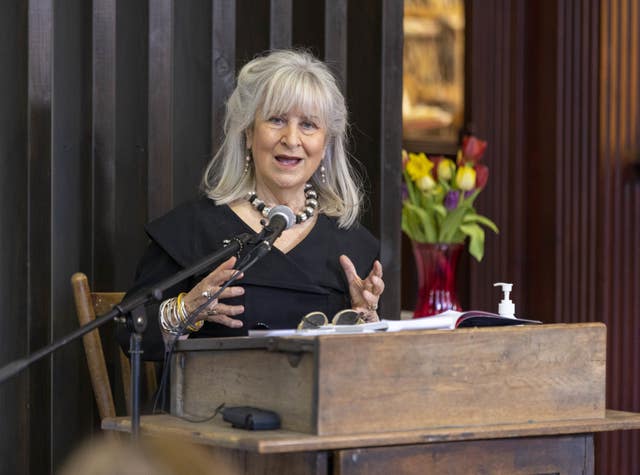
A leading human rights lawyer who reviewed evidence that resulted in an international arrest warrant being issued for Israeli Prime Minister Benjamin Netanyahu over alleged war crimes in Gaza has insisted “no one is above the law”.
Last week, judges at the International Criminal Court (ICC) issued arrest warrants for Mr Netanyahu, former Israeli defence minister Yoav Gallant and Hamas military commander Mohammed Deif, although Israel said Mr Deif had died in an air strike in July.
British human rights lawyer Baroness Kennedy of the Shaws sat on the ICC’s panel of experts that reviewed the evidence before the warrants were issued.
The independent crossbench peer has told Parliament that the decision was “not about equivalence” between Hamas and the Israeli leadership or about “disproportionality” regarding Israel’s response to the October 7 2023 attacks.
She said it was “very specifically about the failure to provide humanitarian aid, water and so on, and the creation of starvation and malnutrition”.
Speaking on a debate about the rule of law in the House of Lords, Lady Kennedy insisted that “no one should enjoy impunity” and that wealth, power and status “should in no way influence the issuing of warrants”.
Her comments came after shadow attorney general Lord Wolfson of Tredegar argued that there is a UK law that would give Mr Netanyahu immunity from arrest in the UK.
He said the International Criminal Court Act of 2001 guaranteed immunity for the head of a government of a state that was not party to the Rome Statute under which the ICC was established.
After the arrest warrants were issued on November 21, the UK Government said it respects the independence of the ICC and that the UK will “always comply with its legal obligations”.
Ministers have said it would be for the courts to decide whether to enforce an international arrest warrant should Prime Minister Netanyahu enter the UK.

Lady Kennedy told peers: “To have the confidence of the public, whether the public in this country or internationally, courts have to be seen to be just and fair and the law has to be applied in a way that is impartial.
“No one should enjoy impunity, no one above the law – and wealth, power, status and privilege should in no way influence, for example, the issuing of warrants…
“We cannot have impunity for certain people. There are no children of a lesser god, and a very high percentage of children have died and we have to make sure that there is a just process – and that is what the International Criminal Court is there to provide.”
She added: “The external evidence review panel was something I was invited to be on for the International Criminal Court in relation to the warrants that were issued against Hamas and against Prime Minister Netanyahu and former defence minister Gallant.
“It’s not unusual for an independent panel to be invited to review evidence to see whether it reaches the thresholds and to make sure that there’s external eyes being applied…
“And we received the evidence – it’s what I’ve spent my life doing: reviewing evidence to see if it reaches the threshold which is required at different stages in a case.
“And I have to say, this was not about equivalence; it was quite different.
“The warrants for the Hamas leader were very different to those that were brought together for the Israeli warrants.
“And they were individuals who had held real responsibility and they were not allegations about disproportionality of the conduct of the war, it was very specifically about the failure to provide humanitarian aid, water and so on, and the creation of starvation and malnutrition.”


Why are you making commenting on The National only available to subscribers?
We know there are thousands of National readers who want to debate, argue and go back and forth in the comments section of our stories. We’ve got the most informed readers in Scotland, asking each other the big questions about the future of our country.
Unfortunately, though, these important debates are being spoiled by a vocal minority of trolls who aren’t really interested in the issues, try to derail the conversations, register under fake names, and post vile abuse.
So that’s why we’ve decided to make the ability to comment only available to our paying subscribers. That way, all the trolls who post abuse on our website will have to pay if they want to join the debate – and risk a permanent ban from the account that they subscribe with.
The conversation will go back to what it should be about – people who care passionately about the issues, but disagree constructively on what we should do about them. Let’s get that debate started!
Callum Baird, Editor of The National
Comments: Our rules
We want our comments to be a lively and valuable part of our community - a place where readers can debate and engage with the most important local issues. The ability to comment on our stories is a privilege, not a right, however, and that privilege may be withdrawn if it is abused or misused.
Please report any comments that break our rules.
Read the rules here